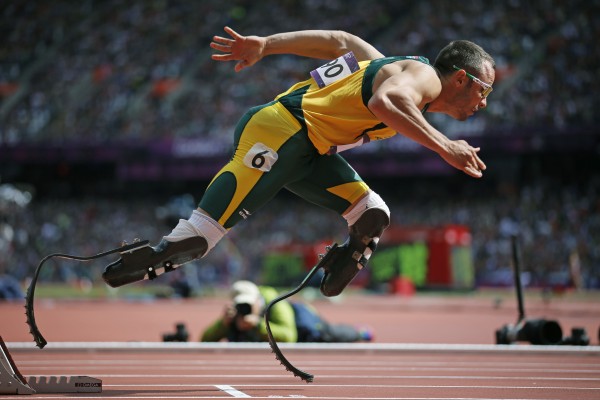Televising Pistorius Trial Sets a Good Precedent
March 2, 2014

It’s been more than a year since South African double amputee Olympic sprinter Oscar Pistorius murdered his girlfriend Reeva Steenkamp on Feb. 14, 2013, shooting her through the bathroom door after he allegedly heard a noise and mistook her for an intruder, and the trial is coming into the limelight once again. The trial, which will start March 3, has been dubbed ‘South Africa’s O.J. Simpson case’ by many, and the country is taking steps to avoid public scrutiny of their legal system; namely, by broadcasting the trial both on television and over the radio. Pistorius’ legal team has argued that such a move would harm his chances of having a fair trial—that it would be unnecessarily harsh—but this added harshness will only serve to subject Pistorius to the kind of treatment that a normal, everyday citizen would receive in court.
It isn’t surprising that comparisons are being made between Pistorius’ case and O.J. Simpson’s. Both men were high-profile athletes, and both their cases involved the murder of women they were involved with in one way or another—for Simpson, it was his ex-wife, and for Pistorius, his girlfriend. The biggest difference is that while Simpson denied he was even at the scene of the crime, Pistorius has confessed to shooting and killing Steenkamp. Unlike with Simpson, where placing the former football player and actor at the scene of the murders of Nicole Brown Simpson and Ronald Lyle Goldman was the main objective of the prosecution, it’s really going to be Pistorius’ character on trial, which is why it’s more important than ever that the trial is televised: Pistorius’ celebrity status cannot be allowed to affect any decisions, and the fact that millions of people are going to be watching and following the trial will put the pressure on the presiding judge to make sure this does not happen.
Judge Duston Mlambo, whose decision opened up the Pistorius trial to the eyes of the world, has said that South Africa’s judicial system is “still perceived as treating the rich and famous with kid gloves whilst being harsh on the poor and vulnerable,” a statement which resonates all too well here in the U.S. Our courts are notorious for practically letting celebrities off the hook, whether it’s Chris Brown, who didn’t even serve jail time for assaulting his then-girlfriend Rihanna, or Lindsay Lohan, who, in the past, has received mere days in rehab for drunk driving charges.
Broadcasting this trial has the potential to send the message that celebrities and other high-profile figures are not above the law—both at home and abroad. And setting such a precedent is needed now more than ever: just look at how people rushed to defend Woody Allen after the New York Times published Dylan Farrow’s letter, in which she detailed how he had sexually abused her when she was just seven years old. While it’s true our country has the whole ‘innocent until proven guilty’ policy, would we really defend Woody Allen so staunchly if he wasn’t an acclaimed writer, director and actor? If a grown woman came out and said that a man, who was like a father to her, sexually abused her when she was a little girl, people would get mad at the abuser, not at the victim—but it seems that that all gets turned on its head when it comes to celebrities.
A televised Pistorius trial would force not only the courts to treat celebrities like any other citizen, but would also push the public towards realizing that their favorites actors, musicians and personalities have to be held accountable for their actions. It is just as important for Justin Bieber fans to stop standing in heart formations to support the pop star for his reckless and irresponsible drunk driving and for us to put the blame where it is truly due in the Woody Allen/Dylan Farrow case as it is for our courts to stay objective. Whether Pistorius is found guilty or not, we’ll be subject to the facts and the trial on a first-hand basis and won’t be able to ignore them because of his fame—and that’s exactly what we need.










LC Alum • Mar 19, 2014 at 4:11 pm
Go back to 1994. O.J. Simpson’s murder trial in LA was televised in all it’s drama and exploitation